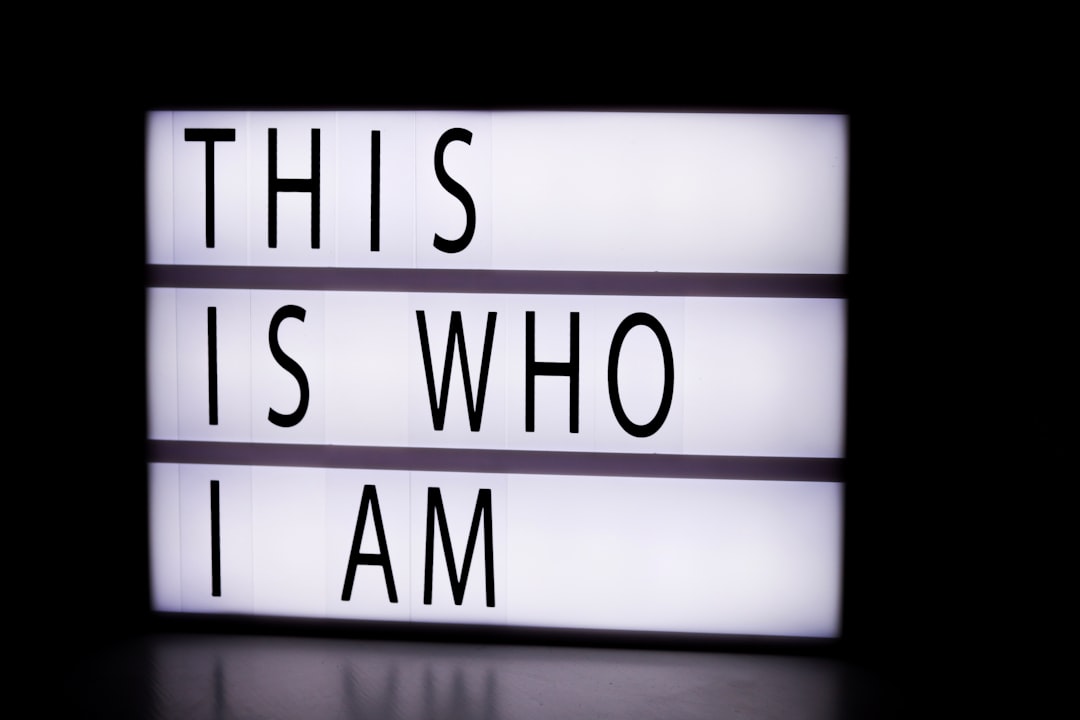I never took much stock in personality tests. Sure, based on your answers they can tell you if you’re an introvert or extrovert (I don’t think most of us need a test for that); they might give you some insight into why you like a messy desk or a clean desk, or what sort of work environment suits your personality, but to dig down deep into what makes you tick and where you will thrive (or not thrive) — hmmm, not really.

Then I took the Myers-Briggs test on Temperament, Character and Intelligence and read PLEASE UNDERSTAND ME by David Keirsey while working for a political campaign, at the behest of the candidate who ran his own business and wanted to know how we all best worked..
I was skeptical, but I took the test. I’m an ENTP: “The Inventor.” And wow. It was me. Especially how I get bored with repetitive work and am always seeking ways to outwit the system. But more important, was understanding my colleagues because learning how they work best helped me become a better communicator.
Fast forward …. two decades.
My daughter Katie sent me the 16 Personalities test (which is a version of the Myers-Briggs test) and told me to take it. I did, thinking maybe I had changed in 20 years and maybe being a self-employed writer–a solitary profession–has changed me after working 13 years in the Legislature where I worked with dozens of people both superiors and subordinates.
Nope, I’m still an ENTP.
The fun thing is that this new test, while nearly identical to the Keirsey Temperament Sorter, completely rewrites the descriptions, making them far more fun and interesting than the academic Keirsey. The ENTP here is called a “debater” but it’s basically the same as the “inventor.” They also added another letter “A” or “T” for how people handle stress and the level of confidence.
While the personality tests are interesting for friends and family, I started thinking about how I could use this in my writing.
I’m very good at putting myself into the shoes of my characters. I think, “What would Kara do in this situation I’ve put her in?” or “How would Regan respond to this complication?” or “How does Matt manage his leadership role when confronted with conflict?” I put myself in their heads and they do what they do … but sometimes, I get stuck. It struck me specifically in writing TELL NO LIES because Michael Harris was undercover and he handled the stress and conflict much differently than Kara Quinn, who was undercover in a different role.
So for fun, I took the 16 Personalities test for my characters. I put myself in their shoes and answered the questions as they would answer them (I hope!)
I started with my long-time series (Lucy Kincaid) because after 17 books and 6 novellas I know Lucy and Sean better than any of my other characters. And this test nailed both personalities.
Lucy Kincaid is an ISFJ “The Defender”.
Defender STRENGTHS
Supportive
Reliable and Patient
Imaginative and Observant
Enthusiastic
Loyal and Hard-Working
Good Practical SkillsDefender WEAKNESSES
Humble and Shy
Take Things Too Personally
Repress Their Feelings
Overload Themselves
Reluctant to Change
Too Altruistic
Sean Rogan is an ENTJ — Commander
ENTJs are natural-born leaders. People with this personality type embody the gifts of charisma and confidence, and project authority in a way that draws crowds together behind a common goal. ENTJs are characterized by an often ruthless level of rationality, using their drive, determination and sharp minds to achieve whatever end they’ve set for themselves.
Commander STRENGTHS
Efficient
Energetic
Self-Confident
Strong-willed
Strategic Thinkers
Charismatic and InspiringCommander WEAKNESSES
Stubborn and Dominant
Intolerant
Impatient
Arrogant
Poor Handling of Emotions
Cold and Ruthless
Yep, this is Sean. Pretty darn accurate. And when I read all the sections, I was nodding along. I think Sean is more sensitive to emotions than portrayed here, but it was something he had to learn, and it didn’t happen until he met Lucy.
So because this test nailed characters I know exceptionally well, I went and took it for characters I’m still — even after four books — getting to know.
Quinn & Costa Thrillers
The test nailed Kara Quinn — which isn’t surprising, because I feel I know Kara better than any of my other characters. I’m very comfortable writing in her POV, so answering the questions was easy.
Kara Quinn is an ISTP - Virtuoso
Virtuoso’s are born problem solvers. They are intensity curious with a strong sense of fairness. They struggle with boundaries and guidelines, and value freedom. They are known to “color outside the lines.”
Virtuoso STRENGTHS
Creative & Practical
Spontaneous & Rational
Flexible & Versatile
Great in a crisis/takes physical risks
Relaxed; “live in the moment” (i.e. go with the flow)
Virtuoso WEAKNESSES
Stubborn
Insensitive
Private & Reserved
Easily bored
Dislikes commitment
Engages in risky behavior
I feel this test nailed Kara. She was an undercover cop for 12 years and is definitely struggling with the structure of her new role on an FBI task force because she is used to autonomy. At the same time, because she is flexible and can “live in the moment” she is finding ways to adapt to her new life … while thinking about how she can get back to her old life.
I wasn’t as confident with the test for Matt Costa, the team leader and Kara’s romantic interest, but I read it twice, and I can definitely see Matt in most of the strengths and some of the weaknesses.
Matt Costa is an ESTJ - Executive
Executives are natural born leaders and will never ask anyone to do something they wouldn’t themselves do. “They are strong believers in the rule of law … lead by example, demonstrating dedication and purposeful honesty, and an utter rejection of laziness and cheating, especially in work.” This is definitely Matt.
Executive - STRENGTHS
Dedicated, principled
Strong-willed
Direct & Honest
Like order (rules, structure)
Loyal, Patient, Reliable (keep their word)
Well-organized, Confident, Delegators
Executive - WEAKNESSES
Inflexible, stubborn
Uncomfortable with unconventional situations
Judgmental (strong convictions of right/wrong/socially acceptable)
Difficult to relax
Difficult to express emotion
Reviewing this list again — it’s probably more like Matt than not. For example, he has a hard time with his relationship with Kara because he doesn’t like dishonesty (and he would considering keeping their relationship a secret being dishonest). He is also very direct, dedicated and principled — he is a good leader. I don’t see him as stubborn, however — he listens to his team, respects them and their skills, and trusts them to do the job. That may stem from maturity.
I also had Michael Harris “take the test.” He’s an ENFJ - Protagonist which is accurate — he feels he has a higher purpose, he is intensely honest, and extremely reliable. He is uncomfortable when anyone violates their ethics, which is why working undercover was so difficult for him.
Dr. Catherine Jones is an INTJ - Architect. I think this fits her, too, more than it doesn’t. They are cynical, independent, ambitious, and goal-orientated, driven by a thirst for knowledge and excellence. However, they aren’t afraid to break the rules, something that is definitely NOT Catherine. However, her primary weakness is arrogance — “Their self-assurance can blind them to the useful input from other people — especially anyone they deem to be intellectually inferior.” That is, indeed, Catherine.
I’m in the middle of writing the fifth Quinn & Costa book, currently untitled, and have introduced a new character who may (or may not!) become a regular character. (I honestly can’t tell you whether this happens because I don’t know if she’ll survive. And if I did, I wouldn’t tell you — no spoilers!) But Sloane Wagner is an important character in THIS book, an FBI agent working undercover in the Los Angeles field office under the guidance of Matt and Matt’s boss Tony Greer.
What makes this personality test more interesting is that I DON’T really know Sloane all that well. So far, I’ve only written a couple chapters in her POV, so I really had to think about how she would answer, based on very limited knowledge about her background and philosophy. Yet, as I’ve gotten deeper into the story, I think this is mostly accurate, and the strengths and weaknesses are useful to refer to when I get stuck.
Sloane Wagner is an INFJ - Advocate
“Idealistic and principled, they aren’t content to coast through life – they want to stand up and make a difference. For Advocate personalities, success doesn’t come from money or status but from seeking fulfillment, helping others, and being a force for good in the world.”
This sums up Sloane perfectly. She cares about integrity, she trusts her own intuition, and has a clear sense of values. She is intensely principled, which she has to rely on while working undercover. Her ethics are unquestionable. On the negative, she is a perfectionist and can be sensitive to criticism. This is going to trip her up in the story at some point. I just don’t know exactly how … which is half the fun of writing!
IN SUMMARY … Understanding your characters is vital to writing. If you don’t know what they would do in any situation, you don’t truly know them.

For WRITERS: Take the test for your series character(s) and see how accurate it is. Do you know your characters as well as you think?
For READERS: Take the test and tell me if it’s accurate for you! My kids all took it and my daughter Mary (an ENFJ — Protagonist) said “I think that was based off my life.” It is totally her.
For more information about the Myers-Briggs test and results and how they can be used, check out their official website! Or check out the 16Personalities website and take the test yourself.
What do you think? If you took the test for yourself, is it accurate? If you took it for your characters, did it give you any insight into who they are and why they do what they do? Can you find ways to use their strengths and weaknesses in your stories?
A fun exercise might be to write a short story with your series character using what you learn in this test and challenging them in ways they haven’t been challenged before!




I am Defender, ISFJ-T. It seems to be fairly accurate.